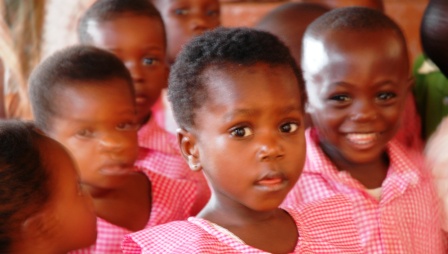|
Discrimination in quality base infrastructure
hinders girl-child education in Ghana
Masahudu Ankiilu Kunateh, Ghanadot
Accra, June 29, Ghanadot - The lack of separate
toilets for girls is a major cause of absenteeism
for girls in schools. Adequate toilet facilities
require the provision of separate and decent toilets
and urinals for boys and girls in school.
However, in Ghana most basic schools
do not have seperate toilet and urinal facilities
for both boys and girls.
In 2008, the Ministry of Education reported that
only 48% out of the total number of 13,247 primary
schools have access to toilet facilities in Ghana
with the highest proportion of primary schools with
toilets (90%) in Tema and the lowest (10%) in
Kintampo South District. At the Junior High School
Level, only 52% of public schools had toilets with
the highest (93%) in Dangbe West in the Greater
Accra Region and the lowest (9%) in the Juabeso
district in the Western Region.
The absence of toilets for girls does not only
affect school attendance but also contributes to the
denial of their right to dignity and quality
education. The national completion rate for boys at
the primary level is 91% whereas that of girls is
79% which suggests that boys have 10% additional
chances of completing primary school than girls.
This is the reason why the gender parity ration is
1:0.96 as against the target of 1:1 that was missed
as far back as 2005.
Marking this years African Day of the child in
Accra, the Ghana National Education Campaign
Coalition (GNECC) traces the fundamental underpin to
absence of adequate and separate toilets for girls,
changing rooms and urinals in schools to the absence
of a comprehensive and operational infrastructural
policy of the Ministry of Education and the Ghana
Education Service.
Toilets and urinals are not
integrated in most school building plans.
Leslie Tettey, the National Coordinator of the GNECC,
urges the Ministry of Education to take immediate
steps to make the inclusion of separate toilets and
urinals a non negotiable element in school building
plans and to fully enforce the implementation of the
policy on school infrastructure at the district
levels to ensure that all schools have separate
toilets and urinals for boys and girls.
Together lets work to make schools safer for girls.
On this day, the African Day of the Child, the Ghana
National Education Campaign Coalition wishes to
renew its commitment to working to ensure that every
child in Africa enjoys the full course of free
quality and enjoyable basic education, irrespective
of gender, race ethnicity, religion and geography.
The Coalition recognizes that one factor responsible
for discrimination in access to quality basic
education in Ghana is the provision of gender
sensitive school infrastructure, notably separate
toilets and urinals for girls and boys.
Ghanadot
|







